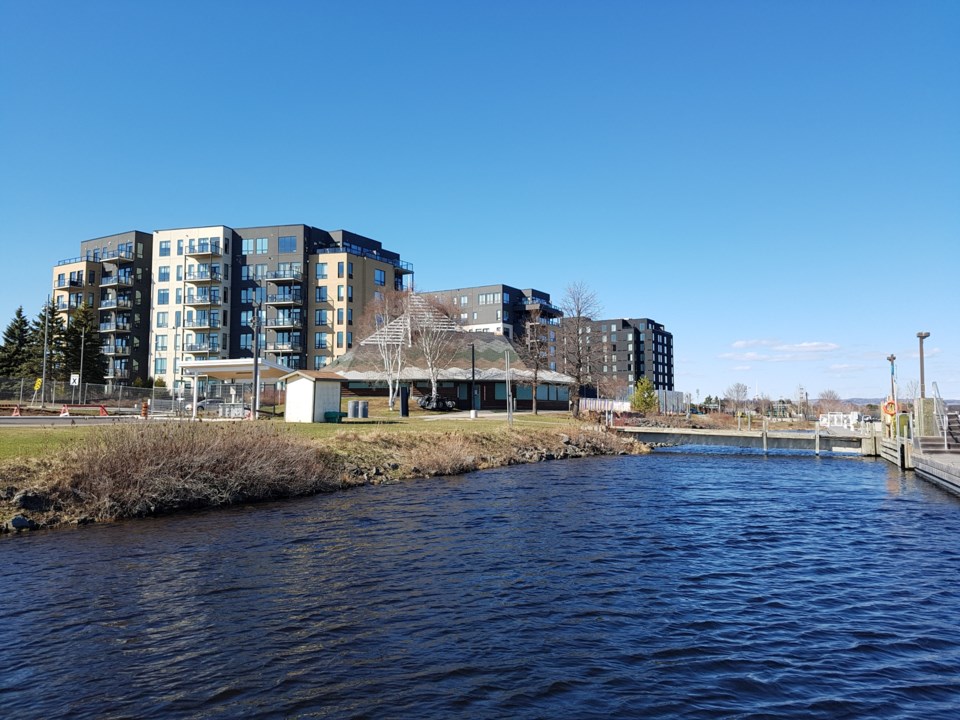THUNDER BAY — The former chair of Thunder Bay's Waterfront Development Committee feels city council made a mistake when it terminated the committee, but another past chair disagrees.
Iain Angus and Mark Bentz have sharply opposing perspectives on the need for the committee, even though they both feel waterfront development is far from finished.
The decision to axe the committee was made with little publicity by the newly-elected council after last November's election.
Ex-councillor Angus, who ran unsuccessfully for mayor, told Tbnewswatch he was disappointed when he learned the committee had been dissolved.
He believes some councillors focused too much on the work that has already been done around Prince Arthur's Landing, "forgetting it is a 52-kilometre waterfront that was originally referenced for the work of the committee."
Angus said the group, in fact, in recent years had been looking at future projects beyond Prince Arthur's Landing.
"We had a session where we pulled together all the interested parties along the shoreline, including developers, the Port Authority, Parks & Open Spaces, the group that had a proposal for the islands, the Friends of Chippewa, all of those groups to share information so that everybody knew what everybody else was doing," he noted.
He said there was also a recent move toward expanding the committee's mandate beyond development, to include monitoring the maintenance of facilities.
"It's one thing to build a world-class facility. If you don't assign the right staff and in the right numbers, and you let it deteriorate, then you lose the investment."
Angus added that the committee was a point of contact for groups such as the Lakehead Transportation Museum Society.
"It was very effective that way, as a sounding board and taking recommendations to council for followup."
He feels a considerable portion of the waterfront still needs "some kind of treatment," whether it's an extension of the trail system, the Kam River Heritage Park or boat launches in Westfort.
"They're all areas that people have a keen interest in, and there needs to be a committee to pull things together and make recommendations to council," Angus said.
Bentz, who recaptured a seat on council in the fall election, was the first chair of the WDC when it was struck in 2006, and held that position for eight years.
He said the committee accomplished a great deal, but he's "comfortable" with the decision to disband it,
"Much of the heavy lifting had been done, and we were quite happy where it sat. Any future items can come directly to council. It's not required to be filtered through a committee" anymore, Bentz said.
The WDC, he said, was critical over its life span in getting community feedback about wants and needs, and was instrumental in attracting $30 million to $40 million from the two senior governments.
Although he feels the committee is no longer necessary, he concurs with Angus that work on the waterfront is far from over.
"Waterfront development in Thunder Bay will be a generational project," Bentz said.
"It's ongoing. We kind of planted the seed for creating an urban space that had components that were attractive to citizens, to tourists, including the hotel, skateboard park, restaurants, park enhancements and all sorts of art features...that's what we want to do. Plant the seed and good things will follow."
Bentz said a waterfront trail from Current River to Westfort remains "on the radar" but it will necessitate land acquisition and the cooperation of the railways.
Still insisting that doing away with the WDC was ill-advised, Angus said the number of waterfront development opportunities and locations demands "an internal lobbyist" to agitate with administration and council "for things that need to be done. And that's the role of that committee."
He speculated that, with a desire to reduce the number of committees at City Hall, the WDC was the unfortunate victim of a combination of "some very tired re-elected councillors who had been on that committee, and some new folks who really didn't understand its role."
.
